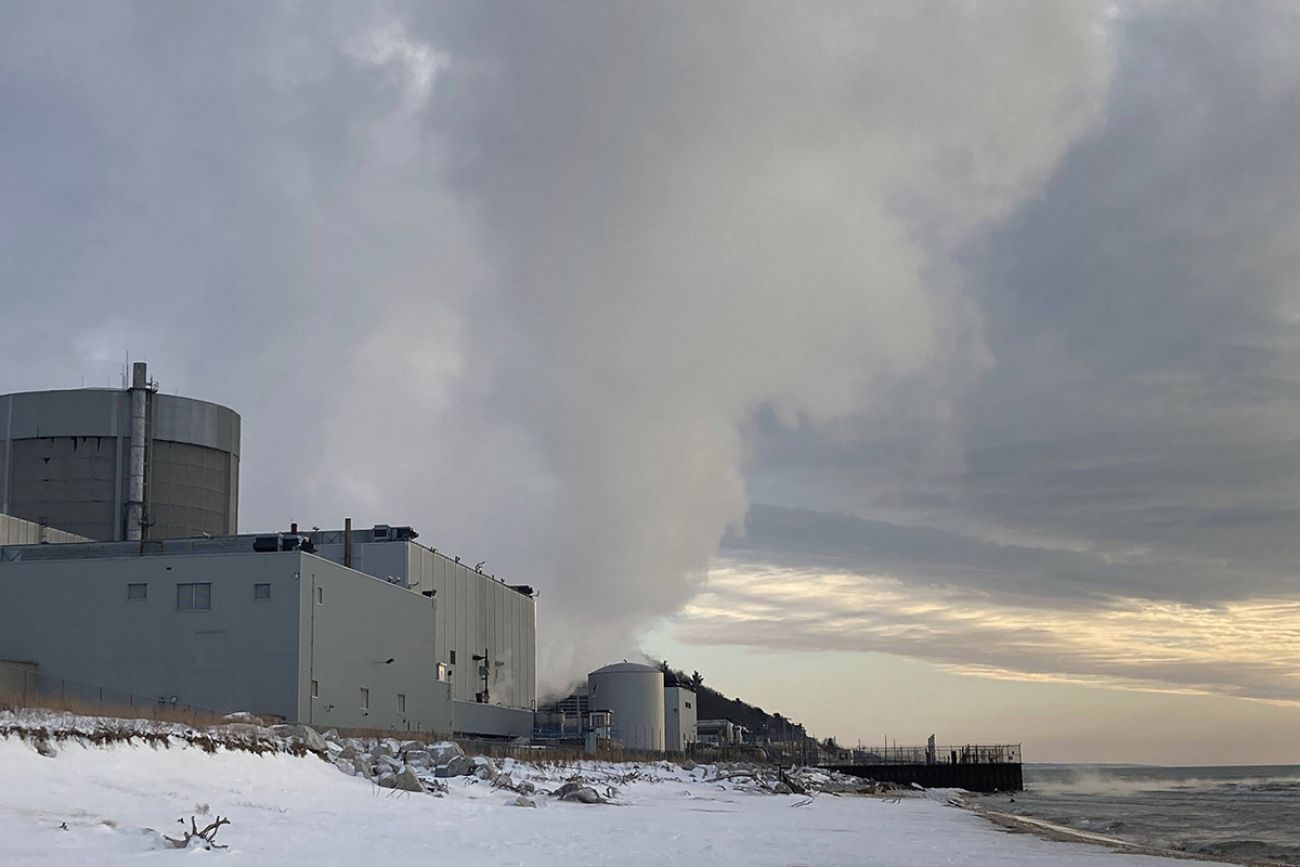Palisades nuclear relaunch gets more subsidies in Michigan — and more backlash

- Rural energy providers in Michigan, Indiana and Illinois will receive hundreds of millions in federal dollars to buy power from the Palisades nuclear plant
- The plant has been closed since 2022, but momentum is building for a restart
- The grants bring total subsidies for Palisades to more than $2.4 billion
The Palisades Nuclear power plant restart effort has secured another round of public subsidies, with two rural electric cooperatives set to receive hundreds of millions of dollars to buy power from the facility.
The U.S. Department of Agriculture announced Thursday that Michigan-based Wolverine Power Cooperative and Indiana-based Hoosier Energy will each receive awards from the Empowering Rural America program, a $9.7 billion Inflation Reduction Act fund designed to help rural electric cooperatives transition to clean energy.
Spokespeople with the USDA Rural Development office refused to provide dollar amounts for the grants, but a Wolverine spokesperson said the company will receive more than $600 million.
Hoosier Energy officials did not immediately respond to an inquiry from Bridge Michigan about their grant.
That brings total public subsidies for the Palisades restart to more than $2.4 billion, including a $1.52 billion federal loan announced in March, and a $300 million commitment from the state of Michigan.
By offsetting the high prices that make nuclear energy an unappealing option for electric utilities, the latest subsidies clear a key barrier to restarting Palisades, which sits on the Lake Michigan shoreline in Van Buren County.
Related:
- Gretchen Whitmer seeks another $150M to restart Palisades nuclear plant
- Nuclear power plant in Michigan awarded $1.5B for nation's first restart
- Fresh off Palisades closure, Michigan will study state’s nuclear prospects
- Nuclear power is having a moment in Michigan after Palisades
The plant closed in 2022 amid struggles to compete against cheaper energy sources. When Palisades was still operating, its power sometimes cost 57% more than competing sources.
Mothballing the facility eliminated hundreds of jobs and removed 800 megawatts from the grid overnight — enough to power 800,000 homes. That loss of reliable, emissions-free energy prompted bipartisan alarm among Michigan lawmakers, who mounted a public campaign to restart the plant.
Its owners, Holtec Energy, have since submitted restart applications to federal nuclear regulators, who say they plan to make a decision by mid-2025. Holtec officials hope to repower the plant by late 2025.
In a statement, Gov. Gretchen Whitmer called the latest cash infusion “another critical step” toward that goal.
“We are showing the world that Michigan will continue to lead the future of clean energy,” Whitmer said.
But pushback from anti-nuclear activists is intensifying. They have filed several petitions in recent weeks raising concerns about the restart plan with the federal Nuclear Regulatory Commission.
Nobody has ever attempted to reopen a shuttered nuclear plant, and opponents argue it’s unwise to do so.
They point to a history of safety violations, the danger of storing nuclear waste along the Lake Michigan shoreline, and concerns about aging infrastructure in the 53-year-old plant.
A decade ago, Palisades made a federal list of plants with the most “high level” safety violations nationwide, though government officials today routinely praise the plant’s more recent safety record.
“This plant was dangerous for decades before it shut down,” said Kevin Kamps, a radioactive-waste specialist with the nonprofit Beyond Nuclear. “It's even become more dangerous since, because of that lack of active safety maintenance.”
While the regulatory process plays out, Holtec Energy may be in line for yet more money for Palisades.
The company is seeking a $7.4 billion federal loan to build small nuclear reactors at Palisades and possibly other properties. And in March, Energy Secretary Jennifer Granholm told Bridge Michigan that the facility may qualify for additional tax incentives.
Michigan Environment Watch
Michigan Environment Watch examines how public policy, industry, and other factors interact with the state’s trove of natural resources.
- See full coverage
- Subscribe
- Share tips and questions with Bridge environment reporter Kelly House
Michigan Environment Watch is made possible by generous financial support from:
Our generous Environment Watch underwriters encourage Bridge Michigan readers to also support civic journalism by becoming Bridge members. Please consider joining today.
See what new members are saying about why they donated to Bridge Michigan:
- “In order for this information to be accurate and unbiased it must be underwritten by its readers, not by special interests.” - Larry S.
- “Not many other media sources report on the topics Bridge does.” - Susan B.
- “Your journalism is outstanding and rare these days.” - Mark S.
If you want to ensure the future of nonpartisan, nonprofit Michigan journalism, please become a member today. You, too, will be asked why you donated and maybe we'll feature your quote next time!






